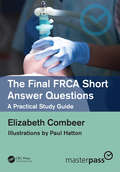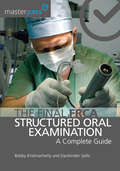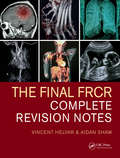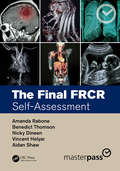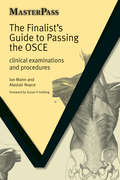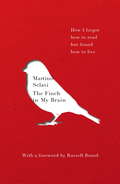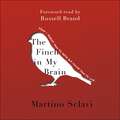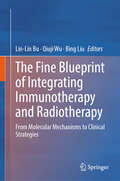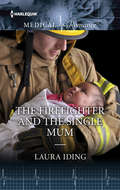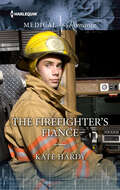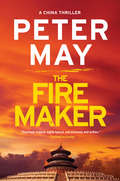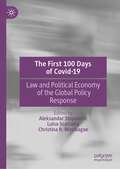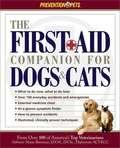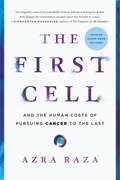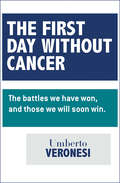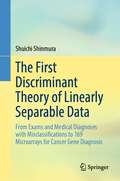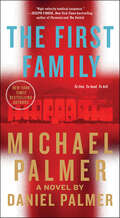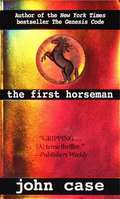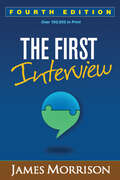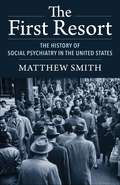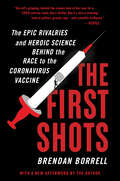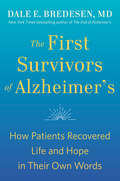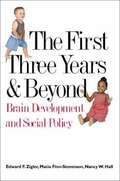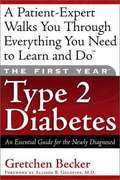- Table View
- List View
The Final FRCA Short Answer Questions: A Practical Study Guide (MasterPass)
by Elizabeth CombeerThis guide to the short answer question section of the final FRCA not only comprehensively covers the subject matter of the exam with past paper examples, it also guides trainees on the most effective manner in which to approach the questions. Chapters reflect the different topics contained within the examination, including pain medicine, ICM, paediatric anaesthesia and more. Every question from the past 6 1/2 years of examinations is addressed and the ideal style in which to answer an SAQ covered in depth. This guide will be gold dust to the candidate preparing for the final FRCA, providing all the answers as well as the best way to present them. It will save hours of research and preparation.
The Final FRCA Structured Oral Examination: A Complete Guide (MasterPass)
by Bobby Krishnachetty Darshinder SethiThe Final FRCA Structured Oral Examination is the last step before earning the initials FRCA and becoming a Fellow of the Royal College of Anaesthetists. This comprehensive revision aid has been compiled by two talented authors who have been running a course on this subject for three years. Motivated to make the cases as close as possible to the exam, they have collected a vast database of questions from their trainees and the book reflects a variety of commonly asked themes. In addition, there are contributions from 11 consultants and registrars, who are all experts in their fields. The clear layout and easy to read style prepares students for the examination environment and focuses on the specific areas and responses examiners look for. The style of questions mimics the exam and there are added tutorials for ECG interpretation and radiology which will benefit trainees immensely in their preparation.
The Final FRCR: Complete Revision Notes
by Aidan Shaw Vincent HelyarThis is a vital revision aid for postgraduate radiology students taking the Fellowship of the Royal College of Radiology (FRCR) Part 2 final exams. Part 2 comprises two elements: 2a includes a series of six multiple choice exams covering the major body systems, and 2b contains a written exam and an oral viva typically taken at the beginning of the fourth year of specialty training.
The Final FRCR: Self-Assessment (MasterPass)
by Aidan Shaw Vincent Helyar Amanda Rabone Benedict Thomson Nicky DineenThis is an SBA question book aimed at the post-graduate radiology market, specifically those taking the Fellowship of the Royal College of Radiology (FRCR) part 2 ('final') exams. This is a complementary title to The Final FRCR: Complete Revision Notes, which published in 2018. Part 2 of the FRCR is itself composed of two elements. Part 2a is a series of six multiple choice exams covering the major body systems: musculoskeletal & trauma, gastrointestinal, genitourinary, head and neck, pediatrics and chest. Part 2b involves a written exam and an oral viva and is typically taken at the beginning of the fourth year of specialty training. Approximately 700-1000 trainees sit the exam each year. The SBAs would also be applicable for those studying for other exams or coming to the UK to sit the UK exams from Asia and the Middle East. Key Features Resource designed for those taking the final FRCR (UK exam) designed to be a complementary product to The Final FRCR: Complete Revision Notes. Templated question format across the six major body systems. Written by recent graduates of the FRCR exams who know how best to approach the topic. Reviewed by senior advisors.
The Finalists Guide to Passing the OSCE: Clinical Examinations and Procedures
by Ian Mann Alastair NoycePerforming well in the Objective Structured Clinical Examination (OSCE) requires sound medical knowledge and a systematic approach to clinical examination. It is the most daunting assessment for medical students - they are expected to take full and accurate medical histories, perform structured and comprehensive clinical examinations, and display competence and dexterity when performing procedures. They must also demonstrate interest and enthusiasm towards their patients, and show empathy when appropriate. This book will help you to focus on key point scoring areas, learn golden rules for each examination and avoid pitfalls, potential disasters and common mistakes. It provides essential details on structure and approach, without weighing you down - its handy size means you can use it at the bedside, on the ward, or whilst observing other students examining a patient. The best practice methods for approaching patients at each station will ensure that you'll have the confidence to impress examiners.
The Finch in My Brain: How I forgot how to read but found how to live
by Martino Sclavi'Whenever I see Martino I am reminded of how little I know about life and death compared to him. How we don't know what is within us or what may lie on the other side. I hope it's as magical and beautiful as this book.' --Russell BrandWhen film producer Martino Sclavi began experiencing intense headaches, he attributed them to his frenetic lifestyle. As it turned out, he had grade 4 brain cancer and was given 18 months to live. After undergoing brain surgery - while awake - Martino found he had lost the ability to recognise words. His response was to close his eyes and begin to move his fingers across the keyboard to write this, an account of life before diagnosis and since. Defying all predictions Martino is still very much alive, words read out to him by the monotone of a computerised voice he calls Alex. But he must now live in a new way. This book - that he has written but cannot read - charts the effects of his experience: on his relationship with his young son, his marriage, his work and with himself. In the wake of his illness, everything must be reconfigured and Martino is made to question the habits, dreams and beliefs of his old life and confront the present. What he finds is strange and beautiful. Searching for the words between life and death, Sclavi shows that with determination and a subtle, persistent sense of humour, it is possible to change the story of our lives.
The Finch in My Brain: How I forgot how to read but found how to live
by Martino Sclavi'It's eerily joyful to write a foreword for Martino Sclavi's book because five years ago I accepted that he was going to die.' Russell Brand. Diagnosed with fatal brain cancer, the treatment that follows renders the writer of this extraordinary memoir unable to recognise words. This is the inspiring story he can no longer read. With a foreword by Russell Brand.This is the story of a successful Italian-born, London-based film writer who is suddenly, wholly unexpectedly diagnosed with stage four brain cancer. The prognosis is bad: there's a 98% likelihood he'll be dead within 18 months. He undergoes two operations, including one in which he must remain awake throughout. Part of his brain is removed, the part that enables us to recognise written words - to read. As someone who relies on words for their livelihood, their very identity, this presents impossible questions as to what happens next. Defying all predictions, Martino is still very much alive five years on, and is writing and being read to by a monotonous computerised voice he calls Alex. His marriage suffered, his relationship with his young son - whom he will never read bedtime stories to again - must be reconfigured and he is made to question all that his previous life gave him, along with his habits, dreams and beliefs.As Sclavi faces the reality of the narrative he's been presented by doctors, he shows us that with determination, it is possible to change that narrative, and in doing so inspires and empowers us all to believe that it is possible to change the story of our lives.'Whenever I see Martino I am reminded of how little I know about life and death compared to him. How we don't know what is within us or what may life on the other side. I hope it's as magical and beautiful as this book.'Russell Brand.(P)2017 Hodder & Stoughton Limited
The Fine Blueprint of Integrating Immunotherapy and Radiotherapy: From Molecular Mechanisms to Clinical Strategies
by Bing Liu Lin-Lin Bu Qiuji WuThis book provides a comprehensive overview of the principles and applications of immunotherapy and radiotherapy in the treatment of cancer. It covers the basic concepts of immunotherapy, immunology, radiation physics, radiobiology, and tumor biology, as well as their clinical aspects, such as patient selection, treatment planning, delivery techniques, toxicity management, outcome evaluation, and neoadjuvant approaches. The book also discusses the current challenges and future directions in the field, such as combining immunotherapy and radiotherapy, optimizing the timing and sequencing of treatments, developing novel biomarkers and predictive models, and implementing personalized and adaptive approaches. The book is intended for oncologists, radiation oncologists, medical physicists, radiation therapists, immunologists, researchers, students, and anyone interested in learning more about this rapidly evolving area of cancer therapy.
The Firefighter and the Single Mum
by Laura IdingWhen firefighter Austin Monroe is called to the scene of burning cottages, he is surprised to find his late partner's widow, nurse Lindsey Winters, and her young son among the victims!Lindsey and her son are left homeless by the fire. Austin offers to let them stay with him, but Lindsey is determined to go it alone. Austin, however, is equally determined to help them.He realizes that what Lindsey needs right now is support and friendship, so he tries his best to fight his intense attraction to her. Austin must be patient and play it carefully if he wants to make their temporary arrangement permanent.
The Firefighter's Fiance
by Kate HardyFrom best friends…Kelsey Watson's life seems to be ticking along just fine. She loves her firefighting job, she's happily single and she has a wonderful (and gorgeous) friend, colleague and housemate in paramedic Matt Fraser.To bride-to-be…Then Matt notices that a fierce fire in a primary school affects Kelsey more deeply than she's admitting. As he tries to help her get to the root of her problems, a deeper connection begins to emerge between them that neither of them expected—or knows how to handle!
The Firemaker (The\china Thrillers Ser. #1)
by Peter MayA grotesquely burned corpse found in a city park is a troubling mystery for Beijing detective Li Yan. Yan, devoted to his career as a means of restoring the respect his family lost during the Cultural Revolution, needs outside help if he is to break the case.The unidentified cadaver in turn provides a welcome distraction for forensic pathologist Margaret Campbell. Campbell, married to her work and having left America and her broken past behind, throws herself into the investigation, and before long uncovers a bizarre anomaly.An unlikely partnership develops between Li and Campbell as they follow the resulting lead. A fiery and volatile chemistry ignites: exposing not only their individual demons, but an even greater evil--a conspiracy that threatens their lives, as well as those of millions of others.
The First 100 Days of Covid-19: Law and Political Economy of the Global Policy Response
by Aleksandar Stojanović Luisa Scarcella Christina R. MosalagaeThis book provides a novel in-depth study of the early pandemic response policy at the intersection of political economy and law. It explores: (1) whether the responses to COVID-19 were democratically accountable; (2) the ways in which new surveillance and enforcement techniques were adopted; (3) the new monetary and fiscal policies which were implemented; (4) the ways in which employed and unemployed persons were differently impacted by the new policies; and (5) how companies were economically sustained through the pandemic. A compelling look at what happens to societies when disaster strikes, this book will be of interest to legal scholars, political scientists and economists.
The First Aid Companion for Dogs and Cats
by Amy D. ShojaiHow to treat wounds, injuries and diseases in dogs and cats. Veterinary emergencies, your essential medicine chest, how to prevent accidents, symptom finder, and more.
The First Cell: And the Human Costs of Pursuing Cancer to the Last
by Azra RazaA world-class oncologist's devastating and deeply personal examination of cancerWe have lost the war on cancer. We spend $150 billion each year treating it, yet -- a few innovations notwithstanding -- a patient with cancer is as likely to die of it as one was fifty years ago. Most new drugs add mere months to one's life at agonizing physical and financial cost.In The First Cell, Azra Raza offers a searing account of how both medicine and our society (mis)treats cancer, how we can do better, and why we must. A lyrical journey from hope to despair and back again, The First Cell explores cancer from every angle: medical, scientific, cultural, and personal. Indeed, Raza describes how she bore the terrible burden of being her own husband's oncologist as he succumbed to leukemia. Like When Breath Becomes Air, The First Cell is no ordinary book of medicine, but a book of wisdom and grace by an author who has devoted her life to making the unbearable easier to bear.
The First Day Without Cancer
by Umberto Veronesi"Professor, will there ever be an end to cancer?" This is one of the questions Umberto Veronesi gets asked most often. Today's researchers have made great strides toward finding an absolute cure for cancer. In this book, world-renowned oncologist Umberto Veronesi highlights the progress made in this difficult field, describing the battles we have won and those we intend to win in the near future. The day will come when cancer will cease to be a problem. Healthy lifestyles and ongoing research assure us of this. The First Day Without Cancer is an illuminating book that provides a fascinating glimpse into the future of cancer treatments, giving solid evidence indicating that the first day without cancer is imminent.
The First Discriminant Theory of Linearly Separable Data: From Exams and Medical Diagnoses with Misclassifications to 169 Microarrays for Cancer Gene Diagnosis
by Shuichi ShinmuraThis book deals with the first discriminant theory of linearly separable data (LSD), Theory3, based on the four ordinary LSD of Theory1 and 169 microarrays (LSD) of Theory2. Furthermore, you can quickly analyze the medical data with the misclassified patients which is the true purpose of diagnoses. Author developed RIP (Optimal-linear discriminant function finding the combinatorial optimal solution) as Theory1 in decades ago, that found the minimum misclassifications. RIP discriminated 63 (=26−1) models of Swiss banknote (200*6) and found the minimum LSD: basic gene set (BGS). In Theory2, RIP discriminated Shipp microarray (77*7129) which was LSD and had only 32 nonzero coefficients (first Small Matryoshka; SM1). Because RIP discriminated another 7,097 genes and found SM2, the author developed the Matryoshka feature selection Method 2 (Program 3), that splits microarray into many SMs. Program4 can split microarray into many BGSs. Then, the wide columnLSD (Revolution-0), such as microarray (n Theory3 shows the surprising results of six ordinary data re-analyzed by Theory1 and Theory2 knowledge. Essence of Theory3 is described by using cephalopelvic disproportion (CPD) data. RIP discriminates CPD data (240*19) and finds two misclassifications unique for cesarean and natural-born groups. CPD238 omitting two patients becomes LSD, which is the first case selection method. Program4 finds BGS (14 vars.) the only variable selection method for Theory3. 32 (=25) models, including BGS, become LSD among (219−1) models. Because Program2 confirms BGS has the minimum average error rate, BGS is the most compact and best model satisfying Occam’s Razor. With this book, physicians obtain complete diagnostic results for disease, and engineers can become a true data scientist, by obtaining integral knowledge ofstatistics and mathematical programming with simple programs.
The First Family: A Novel
by Michael Palmer Daniel PalmerThe President’s teenage son is threatened by a potentially fatal illness rooted in dark secrets from a long-buried past.The White House is not an easy place to grow up, so when Cam Hilliard, the president’s sixteen-year-old son, experiences fatigue, moodiness, and an uncharacteristic violent outburst, doctors are quick to dismiss his troubles as teen angst. But Secret Service agent Karen Ray is convinced there’s something more to Cam’s issues—something serious enough to summon her physician ex-husband for a second opinion.Dr. Lee Blackwood must make a diagnosis from an array of symptoms he’s never seen before. His only clue is a young patient named Susie Banks, who seems to be suffering from the same baffling condition—and who was just hospitalized after an attempted murder. As Lee and Karen race to save Cam’s life, they begin to uncover betrayals that breach the highest levels of national security.Returning to the Washington, DC setting of The First Patient, The First Family is a riveting medical drama from acclaimed novelist Daniel Palmer, in the tradition of his late father, New York Times–bestselling novelist Michael Palmer.
The First Horseman
by John CaseOn the Norwegian sea, an icebreaker forges its way through frozen waters to a remote island in the Arctic, carrying a scientific team that hopes to unearth the bodies of long-dead miners. Washington Post reporter Frank Daly has the story of a lifetime. But his plan to join the scientists on their historic mission is ruined by a ferocious storm. When he meets up with the ship upon its return to port in Norway, it is clear that something has gone terribly wrong. Fear haunts the faces of the crew. No one will talk. And someone wants Daly to stop asking questions. But the more he uncovers, the more dangerous the stakes become. Until at last he comes face-to-face with a shocking secret, a secret that pitches him into a harrowing race to prevent nothing less than . . . apocalypse.
The First Interview, Fourth Edition
by James MorrisonThis trusted practitioner resource and course text is grounded in James Morrison's experience with more than 15,000 mental health patients. Morrison provides a complete framework for interviewing adult patients about their current symptoms, personal and family history, mental status, behavioral risks, and other relevant issues. He offers guidance for selecting the best strategy for any clinical situation, building rapport, overcoming common challenges, and communicating findings. Appendices include a detailed semistructured interview and a self-assessment tool for interviewers, both with permission to photocopy. Purchasers also get access to a Web page where they can download and print the reproducible materials in a convenient 8 1/2" x 11" size. New to This Edition *Revised throughout for DSM-5. *Updated resources and suggested readings.
The First Resort: The History of Social Psychiatry in the United States
by Matthew SmithSocial psychiatry was a mid-twentieth-century approach to mental health that stressed the prevention of mental illness rather than its treatment. Its proponents developed environmental explanations of mental health, arguing that socioeconomic problems such as poverty, inequality, and social isolation were the underlying causes of mental illness. The influence of social psychiatry contributed to the closure of psychiatric hospitals and the emergence of community mental health care during the 1960s. By the 1980s, however, social psychiatry was in decline, having lost ground to biological psychiatry and its emphasis on genetics, neurology, and psychopharmacology.The First Resort is a history of the rise and fall of social psychiatry that also explores the lessons this largely forgotten movement has to offer today. Matthew Smith examines four ambitious projects that investigated the relationship between socioeconomic factors and mental illness in Chicago, New Haven, New York City, and Nova Scotia. He contends that social psychiatry waned not because of flaws in its preventive approach to mental health but rather because the economic and political crises of the 1970s and the shift to the right during the 1980s foreclosed the social changes required to create a more mentally healthy society. Smith also argues that social psychiatry provides timely insights about how progressive social policies, such as a universal basic income, can help stem rising rates of mental illness in the present day.
The First Shots: The Epic Rivalries and Heroic Science Behind the Race to the Coronavirus Vaccine
by Brendan BorrellThe full inside story of the high-stakes, global race for the lifesaving vaccine to end the pandemic Heroic science. Chaotic politics. Billionaire entrepreneurs. Award-winning journalist Brendan Borrell brings the defining story of our times alive through compulsively readable, first-time reporting on the players leading the fight against a vicious virus. The First Shots, soon to be the subject of an HBO limited series with superstar director and producer Adam McKay (Succession, Vice, The Big Short), draws on exclusive, high-level access to weave together the intense vaccine-race conflicts among hard-driving, heroic scientists and the epic rivalries among Washington power players that shaped 18 months of fear, resolve, and triumph. From infectious disease expert Michael Callahan, an American doctor secretly on the ground in Wuhan in January 2020 to gauge the terrifying ravages of Disease X; to Robert (Dr. Bob) Kadlec, one of Operation Warp Speed&’s architects, whose audacious plans for the American people run straight into the buzz saw of the Trump White House factions; to Stéphane Bancel of upstart Moderna Therapeutics going toe-to-toe with pharma behemoth Pfizer, The First Shots lays bare, in a way we have not seen, the full stunning story behind the medical science &“moon shot&” of our lifetimes.
The First Survivors of Alzheimer's: How Patients Recovered Life and Hope in Their Own Words
by Dale BredesenFirst person stories of patients who recovered from Alzheimer's Disease--and how they did it.It has been said that everyone knows a cancer survivor, but no one has met an Alzheimer's survivor – until now. In his first two books, Dr. Dale Bredesen outlined the revolutionary treatments that are changing what had previously seemed like the inevitable outcome of cognitive decline and dementia. And in these moving narratives, you can hear directly from the first survivors of Alzheimer&’s themselves--their own amazing stories of hope told in their own words. These first person accounts honestly detail the fear, struggle, and ultimate victory of each patient's journey. They vividly describe what it is like to have Alzheimer's. They also drill down on how each of these patients made the program work for them--the challenges, the workarounds, the encouraging results that are so motivating. Dr. Bredesen includes commentary following each story to help point readers to the tips and tricks that might help them as well.Dr. Bredesen's patients have not just survived; they have thrived to rediscover fulfilling lives, rewarding relationships, and meaningful work. This book will give unprecedented hope to patients and their families.
The First Three Years and Beyond: Brain Development and Social Policy
by Edward F. Zigler Matia Finn-Stevenson Nancy W. HallDrawing on the latest research from the social sciences and studies on the brain to answer questions and exploring what they mean for social policy and child and family development, this book offers recommendations for child care and development based on current brain research and its implications. A must-read for parents and policy makers alike.
The First Year -- Type 2 Diabetes: An Essential Guide for the Newly Diagnosed
by Gretchen BeckerDr. Podell, a clinical professor at UMDNJ, says of this book: "The most practical and useful guide to diabetes that I have ever seen. Gretchen Becker understands how diabetes feels and what diabetics need to know." The author writes encouragingly and informatively. She presents a variety of information objectively and clearly. No diabetic, or person who knows one, should be without this easy-to-read book.
The First Year of Nursing
by Barbara FinkelsteinNurses from different walks of life and with different nursing specialties share the experiences they had when first entering the profession.
